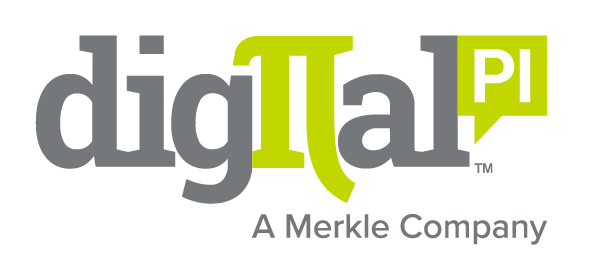After our webinar, Let’s Talk MOps: Teams, Turnover and Trends, we continued the discussion about how hard it is to find and keep the right experts on your team. In this frank discussion between Jeff Coveney, Digital Pi CMO, and Ryan Vong, Digital Pi CEO, we took the talking points a bit further. Check out the video and transcript below to hear more about:
- Why we are discussing the challenges of MOps team building
- Our take on the 2022 turnover situation
- How other B2B companies are addressing staffing challenges
- Advice for facing the inevitable situation of a team member leaving
Jeff Coveney: What do you do when your Marketo admin walks out the door? It happens and it happens a lot, especially over the last year. Next, I sit down with Ryan Vong, CEO of Digital Pi. We talk about how to build a team, how to deal with outsourcing, how to deal with offshoring, everything about hiring tips. Stick around and we’ll talk about that next.
A lot has changed in the last couple years around what companies have been experiencing with their teams, from five years ago till today. What do you see in companies having their dealing with their challenges around staffing?
Ryan Vong: Well, a lot has changed in the last, I’d say COVID years. I definitely have seen quite a bit of change and I’m pretty sure everybody’s seen the articles, heard the term the great resignation, now recently the great regret. Those are all published in the Wall Street journal, and it’s a very interesting trend that we’re seeing. There’s definitely a lot of, I wouldn’t say chaos, it’s just the way things are moving.
It’s just evolving quickly, and there was quite a bit of uncertainty which led to a lot of companies either reducing staff or cutting down on spend in everywhere possible, reduction of salaries, if they’re not cutting staff or maybe both. There were only a few levers that most companies were able to pull at that time, right.
Follows the normal course of any kind of decline in the business. If you think about prior to 2020, the cost of hiring retention and everything had gone up maybe 20, 30, some cases, 40%, or equivalent, folks you would hire before, so it bounced back very fast and that trend continues. Now I think that most companies, it’s a matter of getting to the point where those first… They start to impact the company’s ability to, also how to handle the rate of benefits and hiring and things that you need to keep good solid employees. Right? So quite a bit has changed since, and it’s only happened in the matter of like two years.
Jeff Coveney: Historically companies plan on about 20% turnover somewhere around their year. That increase has been higher the last couple years. How that affected marketing operations for companies?
Ryan Vong: Well, the turnover definitely has affected marketing operations. Some companies have kind of doubled down and said, we are going to maintain and try to build up our own marketing operations teams because we feel that we can do it more efficiently, more cost effective, and having folks in-house. Then there’s, even in those scenarios, it’s really hard to keep folks engaged in that. There are folks who now are on the opposite end of the spectrum, where essentially they’re moving things offshore, and there are many different models.
Now we’ve gotten a lot more sophisticated in how we do it, but that’s the other side of it where their whole sales just said, this is definitely not a core function for our company, so let’s find some other service provider that actually does this and we can outsource all of it. The goal now is to increase profit margin. The goal has always been, but now it’s just more important because the cost of labor has increased significantly.
Turnover now, like you said, Jeff, earlier 20%, you’re looking at 40% and that’s a recurring number that I’m seeing across all of our clients.
Jeff Coveney: Where are you seeing that today, Ryan? A company’s for that operational piece, so are they turning to agencies, or are they doing that internally? Or some mix of that?
Ryan Vong: I think that initially what I saw, I think in the beginning or towards the end of last year, companies really first brought in their own campaign operations folks. I think there was a need to combine marketing ops and campaign ops together. That seemed to be a trend. It didn’t last very long.
I think once we started seeing the turnover in those companies, there’s still quite a few req’s out there. If you look at companies that are looking for campaign ops folks, there’s quite a few req’s out there that they can’t fill. That has started to shift towards agencies like ours. Outsourcing this function seems to be the best scenario. If you think about what you’re doing there too, it’s the cost of doing a campaign now, right.
It has increased significantly because of the cost of the folks that are doing it. The resourcing, everything’s gone up, if you think about all your costs going up 30, 40%, and it’s an internal function. How do you pass that on? That’s not a function.
A cost you pass on to a client, and you can’t do that, right? Internally, that’s just something you’re doing to generate revenue. It’s easier to look at it and say, you know what, I’m going to try the best, most efficient way to outsource this function because it’s something that is sort of a sunk cost.
Jeff Coveney: What can a company do if their expertise just left and they still need to run the business? Yes. And the Mar they don’t have the marketing operations expertise to initiate, to get their campaigns off the ground and continue driving, driving ops. What, what do he suggests they do?
Ryan Vong: The expertise has left the building, that is probably the headline for this entire year, so far. The turnover is high, really good people, talented, smart people are difficult to keep a lot of times. There are a lot of choices out there.
I have had so many calls, I think in the past few months, for this very reason, so and so’s leaving, can we get somebody ASAP to at least get two weeks of offboarding and brain dumps and everything to help make sure that nothing falls through the gaps, right? I think that moms has a very difficult role to running things because when it’s running smooth, nobody says anything. You only hear about things from this team or about the team when something doesn’t go right, right? There’s quite a bit in the background to really make sure that everything goes right. Having all the knowledge centralized in a particular person, I think it is a very difficult thing to keep forever, right? You have to build processes, you have to decentralize some of the knowledge so that it’s collectively built up.
Jeff Coveney: One of the other things that’s gone is the market is matured in understanding what goes into operations. I can remember thinking where, “Hey, yeah, just, just go import that list.”. That was a thing. That seems really easy, but the market’s matured where companies understand that’s not just what happens. That’s not easy. I mean, it is easy, but there’s a lot of other things that can happen that you want to avoid.
Ryan Vong: There’s definitely a lot of things. I think the impression that we get a lot of times is why is a list load, as simple as that, not automated, right? Those things should just be naturally done through a system, we’re not there. It still takes a human eye to know that these things are not right. This data isn’t correct. There’s still a lot of manual process.
It probably wasn’t as bad as it used to be, where it just took lists. You formatted them and you did all that stuff, but it still takes a person to do that. You know? What is the cost of doing that for a company, hiring three people, and that’s all they do every day is load lists? That is such a great job description to put out there, what are you going to do, entry-level people need.
It’s just really difficult. I couldn’t imagine anyone excited to go get that kind of job. That’s the stuff you outsource. That’s the stuff that’s like, “Yes, and you want to make sure that it’s done properly.”, and again, when agencies have an incentive to make sure the qualities there, et cetera, and there is a path for those folks, it’s a very different thing than when you have to do it internally. As easy as that is, sometimes that’s the biggest blocker.
Jeff Coveney: Well, thanks Ryan for joining today. We’ll see everyone on the next one. Thanks, everyone.
Ryan Vong: Thanks, Jeff.

